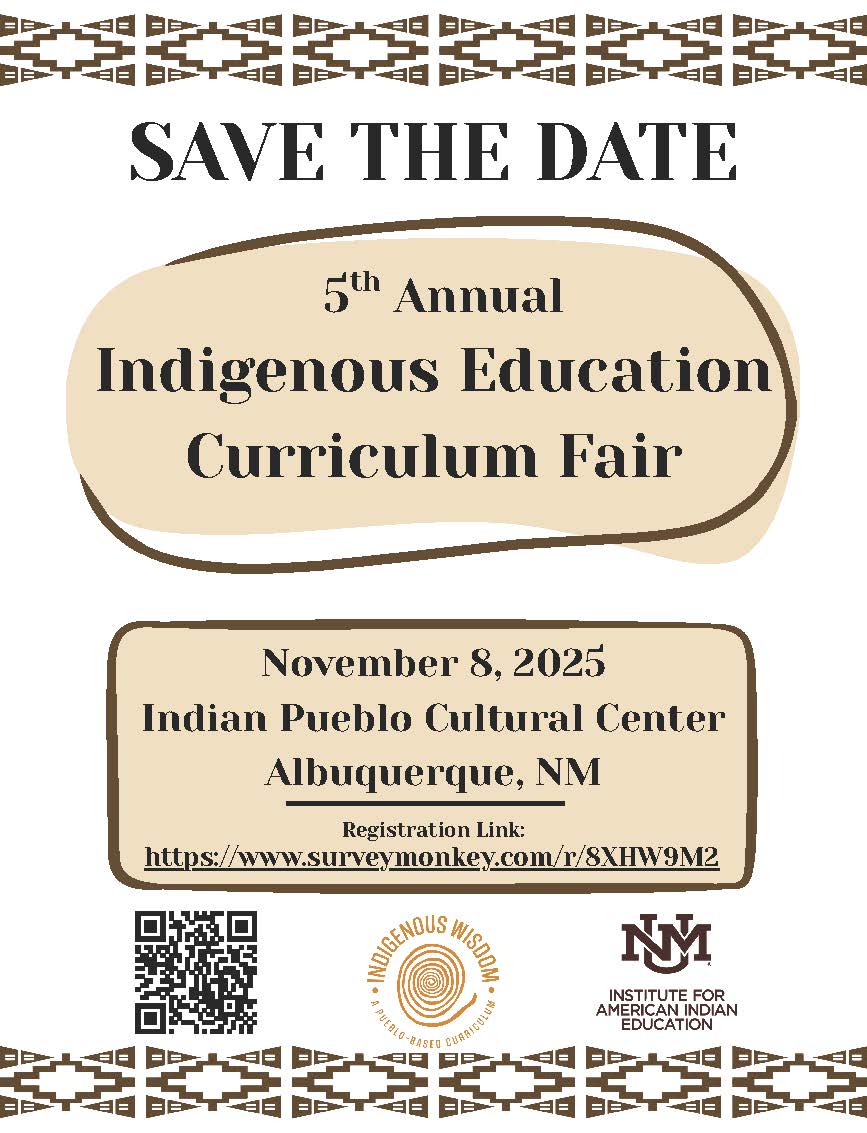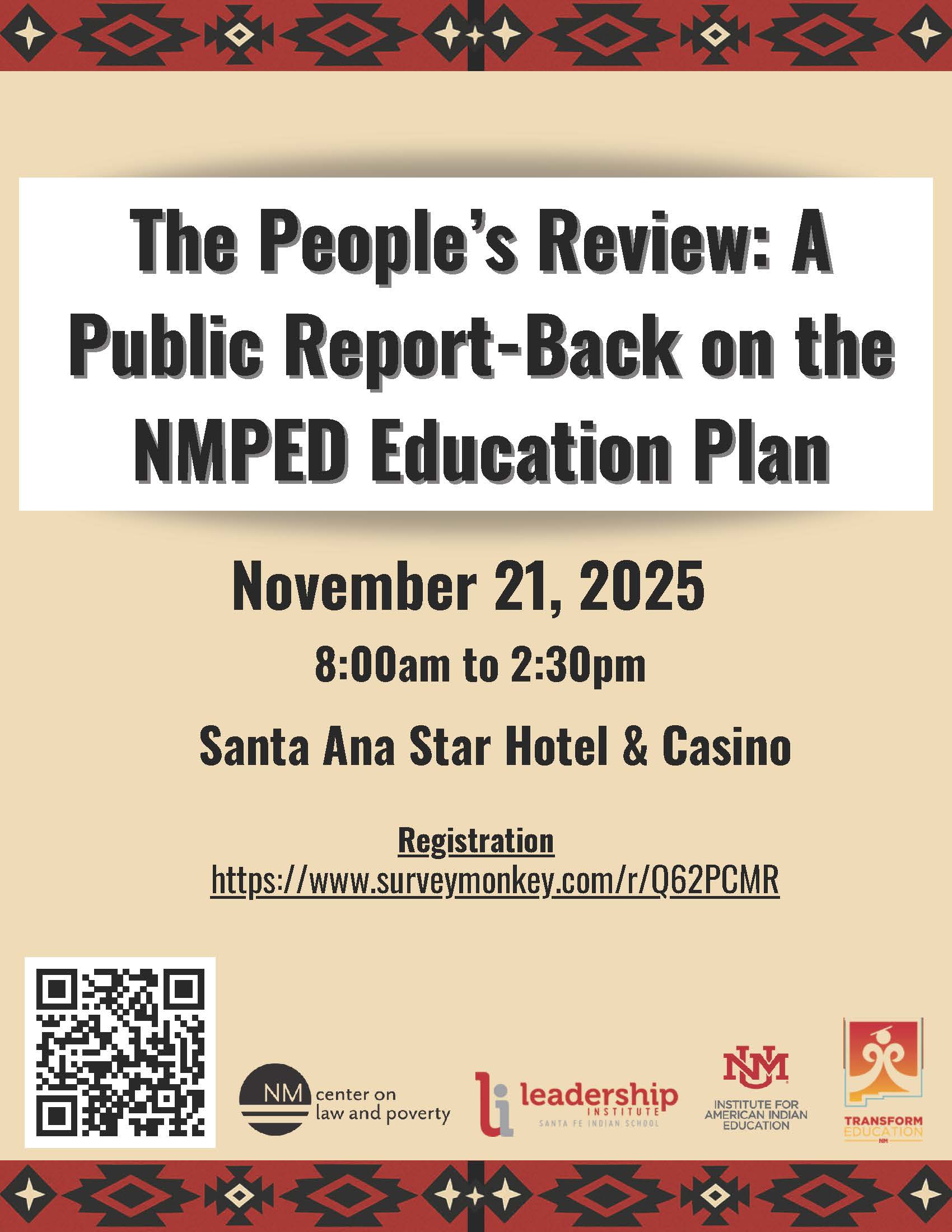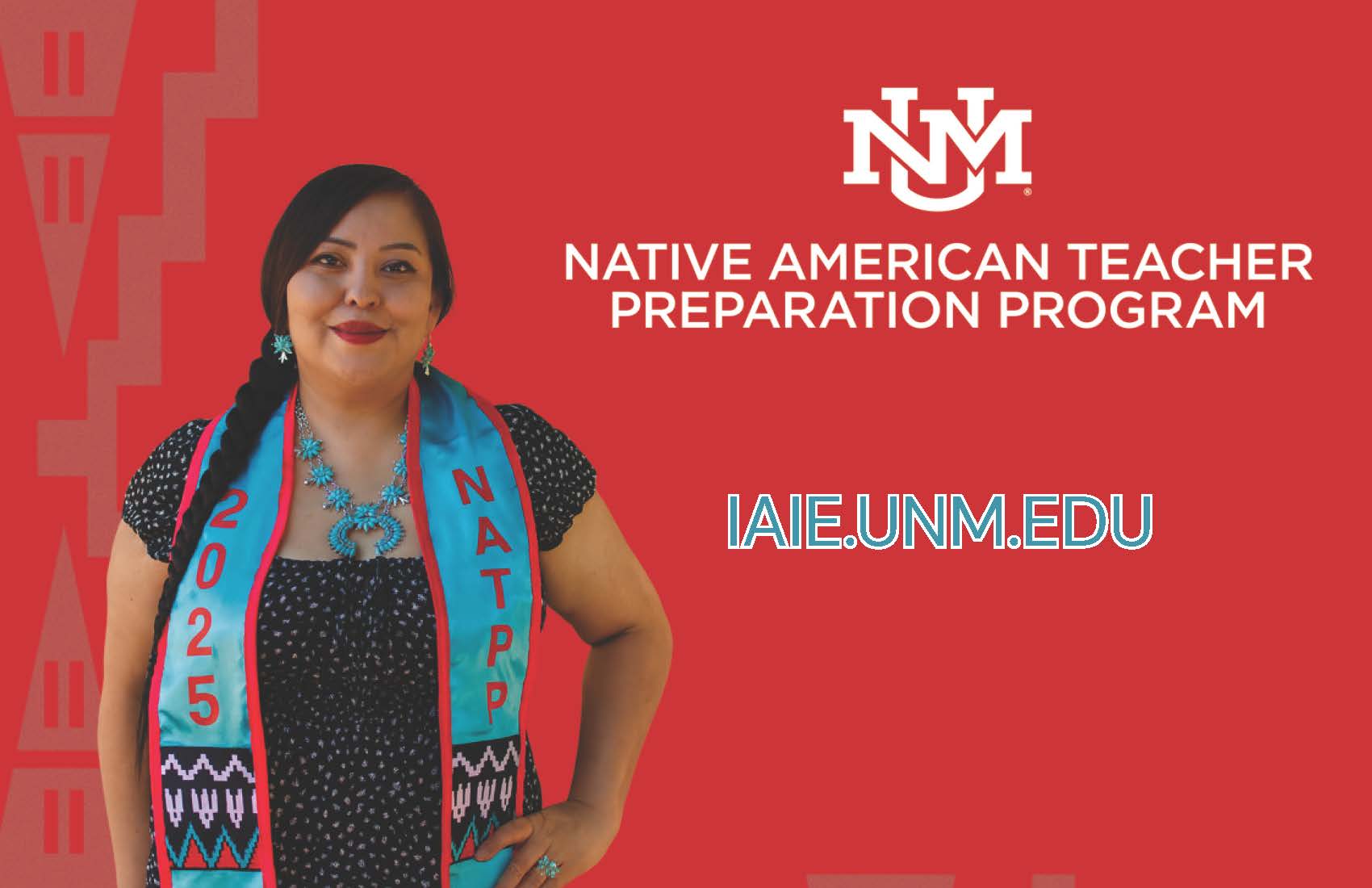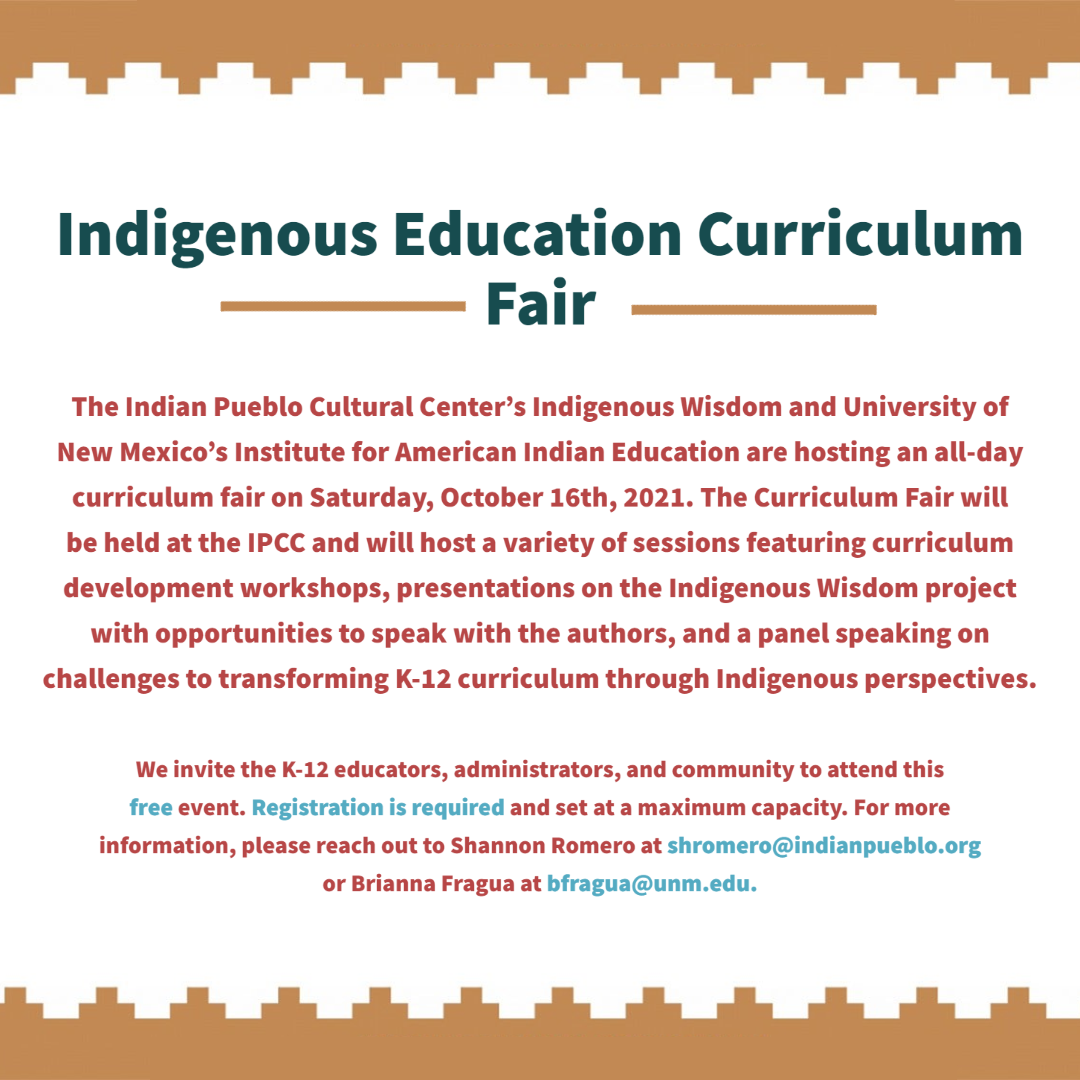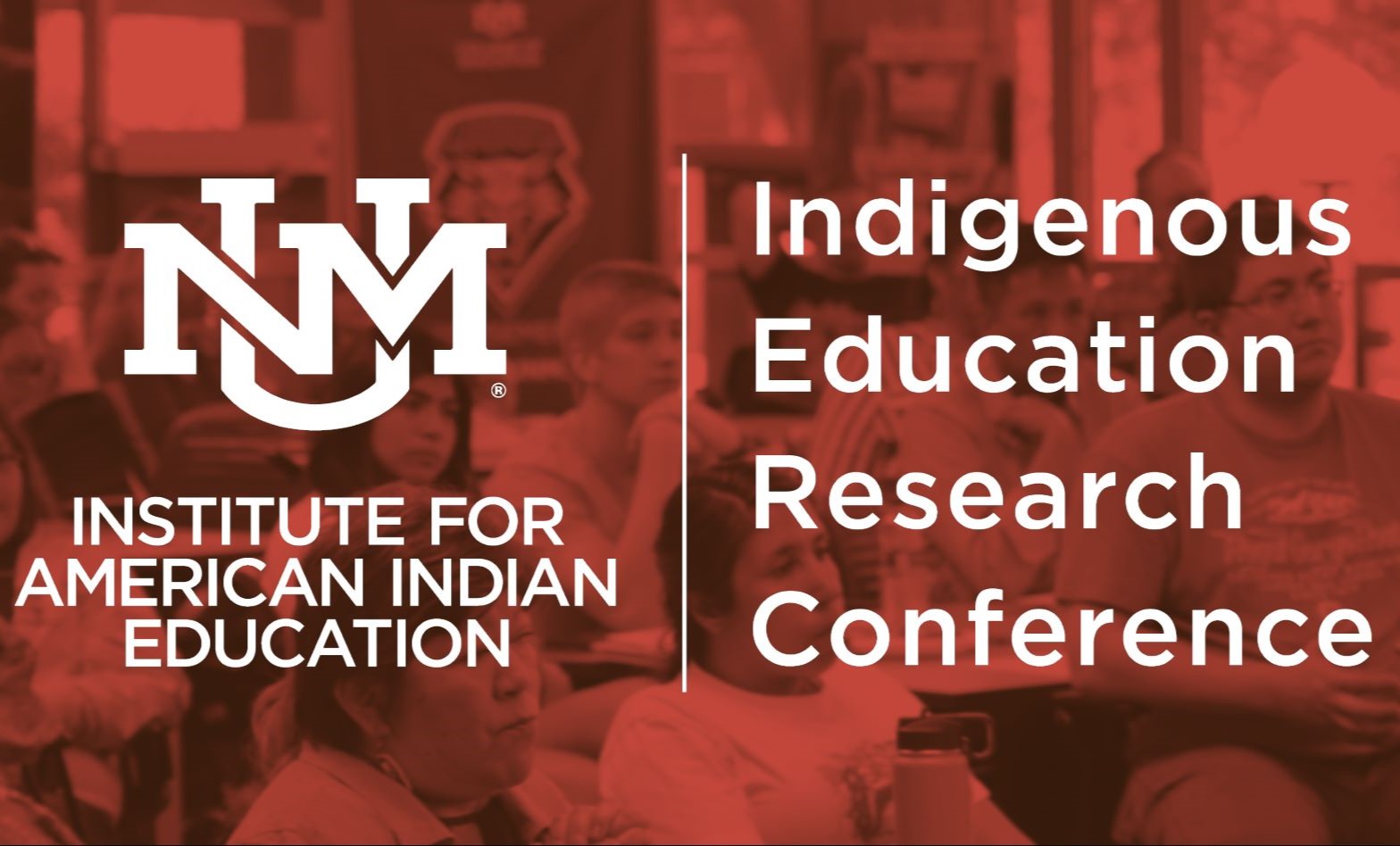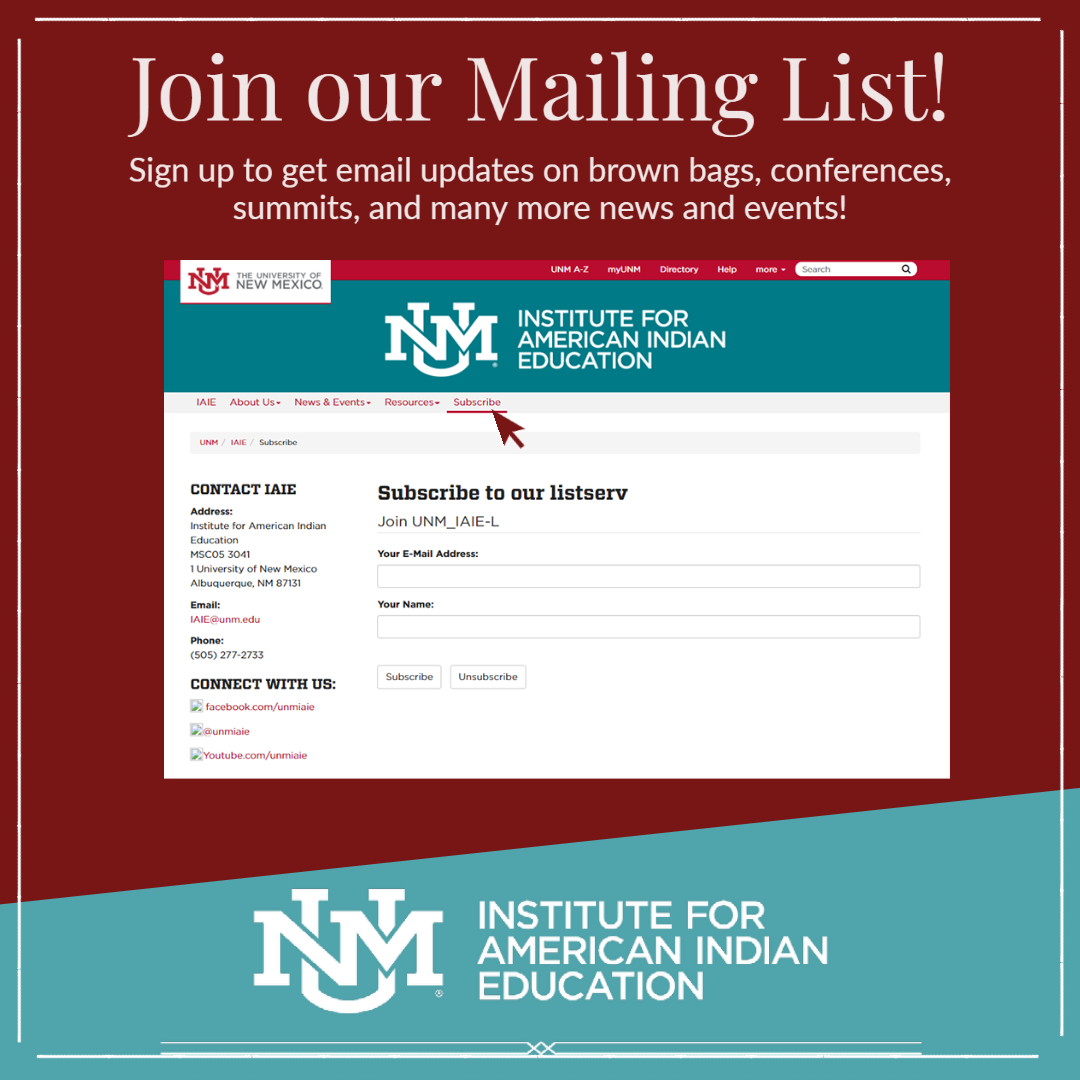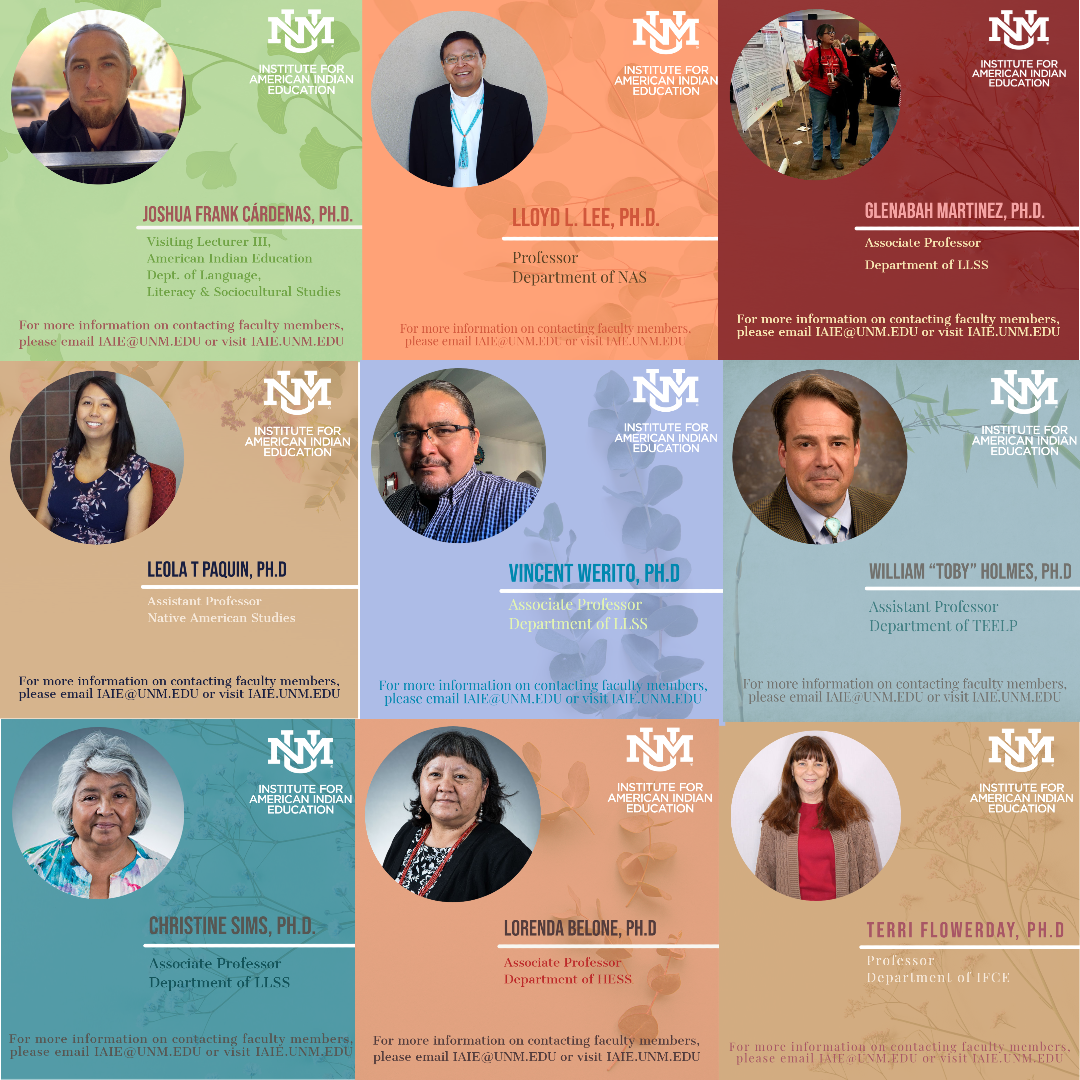Institute for American Indian Education
Originally created in 2004, the Institute for American Indian Education (IAIE) was created by Native education faculty in the College of Education in response to the overwhelming need to increase the number of Native American teachers and improve American Indian Education. In 2017, the work expanded to collaborate with other faculty from the College of Arts and Sciences’ Department of Native American Studies (NAS) as a planning effort to revitalize the institute.
The mission of the Institute for American Indian Education is to support community intergenerational well-being and educational outcomes of Indigenous Peoples by cultivating the quality of educational professionals through community engagement with Native Nations and collaborative partnerships with educational stakeholders.
Becoming a Teacher in Your Indigenous Nation & Community
News and Upcoming Events
IAIE | Indigenous Wisdom Curriculum| 5th Annual Indigenous Education Curriculum Fair
November 8, 2025 | 8:00am - 4:00pm | Indian Pueblo Cultural Center
The People's Review: A Public Report Back on the NMPED Education Plan
November 21, 2025 | 8:00am - 2:30pm | Santa Ana Star Casino/Hotel
IAIE, SFIS Leadership Institute, Transform Education NM and NM Center Law and Poverty will host a Yazzie/Martinez community engagement session to review the PED's education plan to identify shortcomings of the plan, and to demand that it reflects community developed strategies to meet the needs of Native students, English learners, students with disabilities and economically disadvantaged students. Come join us and discuss to identify the next steps in the movement for education justice and equity for the four student groups at the center of the case.
Register Here: https://www.surveymonkey.com/r/Q62PCMR
NATPP Scholarship | Spring Application Deadline: November 15, 2025
Native American Teacher Preparation Program
NATPP is the Institute for American Indian Education's signature scholarship initiative. It prioritizes students who are working toward teacher preparation programs to become licensed teachers. At the graduate level NATPP works to increase the knowledge of multicultural educational thought and Indigenous education.Learn More Here
Last Updated | May 28, 2025
Community Job Board
Visit our Community Job Board page to see employment listings for educators committed to supporting community intergenerational well-being and educational outcomes of Indigenous Peoples.
20 Years of IAIE | December 6, 2024
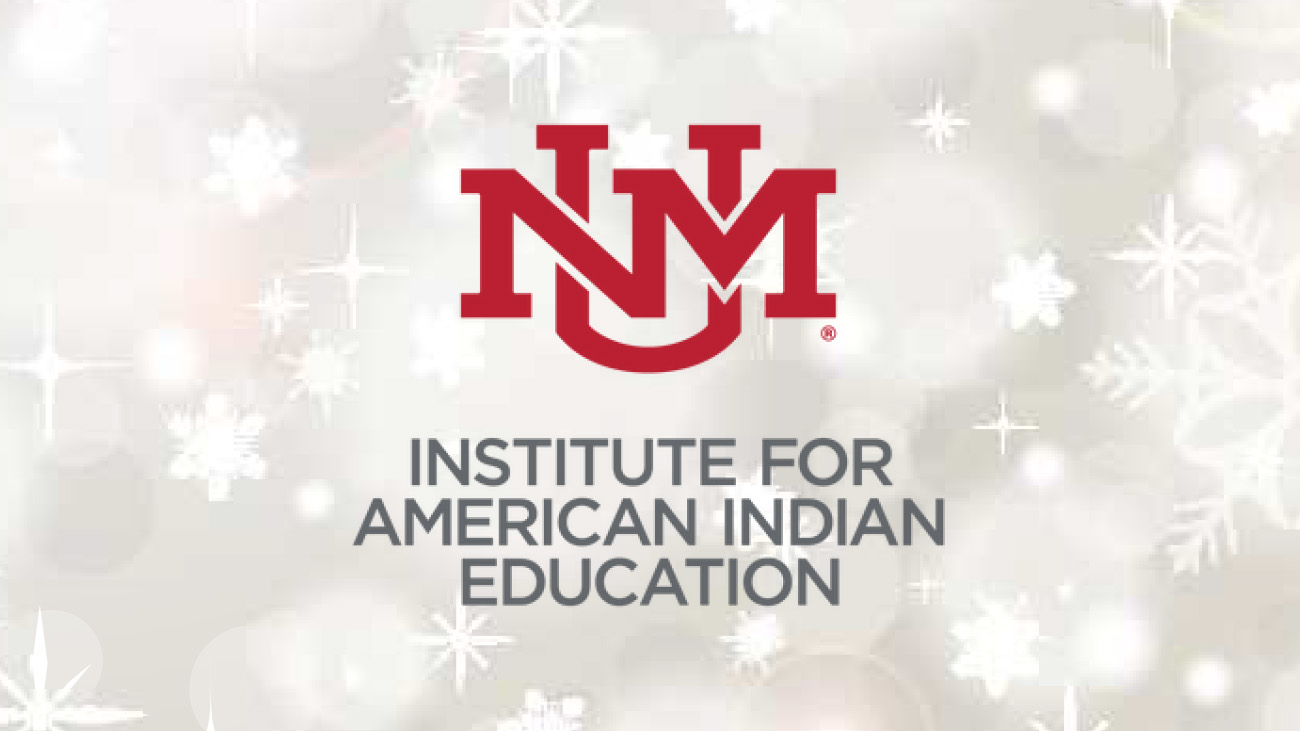 UNM’s Institute for American Indian Education Celebrates 20 years
UNM’s Institute for American Indian Education Celebrates 20 years
"In its two decades of operations, IAIE has helped tackle the educator and administrator shortage within New Mexico’s 23 federally recognized Native Nations. IAIE’s mission is to support community intergenerational well-being and educational outcomes of Indigenous Peoples by cultivating the quality of educational professionals through community engagement with Native Nations and collaborative partnerships with educational stakeholders."
Read More
Explore our Page
Our Curriculum Fair were we host a variety of sessions featuring curriculum development workshops, presentations on the Indigenous Wisdom project with opportunities to speak with the authors, and panels.
The College of Education and Human Sciences at the University of New Mexico leads the nation in the number of Native faculty that represent a diversity of Indigenous Peoples. Individually each faculty member is engaged in research that serves Indigenous Peoples and Nations. Collectively, Native faculty engage in critical dialogue on issues of scholarship/research, teaching, and service.
The Institute host monthly brown bag series, indigenous research conferences, annual summits, curriculum fairs, and many more event. To keep up with the IAIE’s events, head to our website at iaie.unm.edu to subscribe to our ListServ.
IAIE’s mission is to support community intergenerational well-being and educational outcomes of Indigenous Peoples by cultivating the quality of educational professionals through community engagement with Native Nations and collaborative partnerships with educational stakeholders.
Our monthly series of the Institute for American Indian Education (IAIE) at University of New Mexico where our members talk about their research and current work related to educator preparation, language and culture, leadership, and other topics related to Indigenous education.
The Institute for American Indian Education consists of Native Faculty in the College of Education and the College of Arts and Sciences’ Department of Native American Studies. Collectively, IAIE faculty recognize the critical nature of preparing pre-service educators, administrators (K-12 and higher education), non-teaching educational professionals, researchers, and policy makers to work with Native People in the state.
